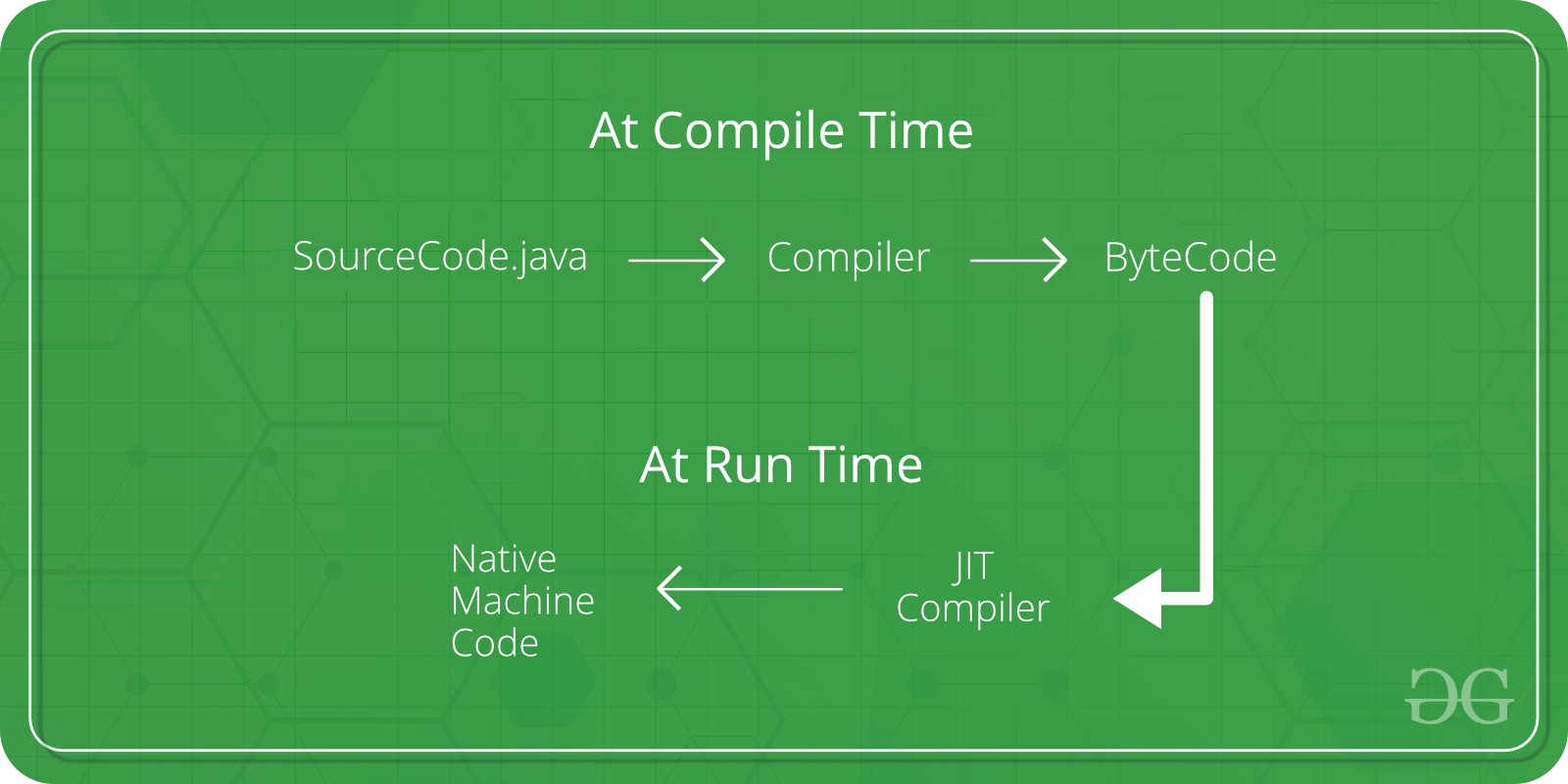Just In Time Compiler
Last Updated :
19 Mar, 2023
The JIT or Just-In-Time compiler is an essential part of the JRE (Java Runtime Environment), that is responsible for performance optimization of java based applications during run time. The compiler is one of the key aspects in deciding the performance of an application for both parties i.e. the end-user and the application developer. Let us check the Just In Time Compiler in Java in more detail.
Java JIT Compiler
Bytecode is one of the most important features of java that aids in cross-platform execution. The way of converting bytecode to native machine language for execution has a huge impact on its speed of it. These bytecodes have to be interpreted or compiled to proper machine instructions depending on the instruction set architecture. Moreover, these can be directly executed if the instruction architecture is bytecode based. Interpreting the bytecode affects the speed of execution. In order to improve performance, JIT compilers interact with the Java Virtual Machine (JVM) at run time and compile suitable bytecode sequences into native machine code. While using a JIT compiler, the hardware is able to execute the native code, as compared to having the JVM interpret the same sequence of bytecode repeatedly and incurring overhead for the translation process. This subsequently leads to performance gains in the execution speed, unless the compiled methods are executed less frequently.
The JIT compiler is able to perform certain simple optimizations while compiling a series of bytecode to native machine language. Some of these optimizations performed by JIT compilers are data analysis, reduction of memory accesses by register allocation, translation from stack operations to register operations, elimination of common sub-expressions, etc. The greater the degree of optimization done, the more time a JIT compiler spends in the execution stage. Therefore it cannot afford to do all the optimizations that a static compiler is capable of, because of the extra overhead added to the execution time and moreover its view of the program is also restricted.

Working on JIT Compiler
Java follows an object-oriented approach, as a result, it consists of classes. These constitute bytecode that is platform neutral and are executed by the JVM across diversified architectures.
- At run time, the JVM loads the class files, the semantics of each are determined, and appropriate computations are performed. The additional processor and memory usage during interpretation make a Java application perform slowly as compared to a native application.
- The JIT compiler aids in improving the performance of Java programs by compiling bytecode into native machine code at run time.
- The JIT compiler is enabled throughout, while it gets activated when a method is invoked. For a compiled method, the JVM directly calls the compiled code, instead of interpreting it. Theoretically speaking, If compiling did not require any processor time or memory usage, the speed of a native compiler and that of a Java compiler would have been the same.
- JIT compilation requires processor time and memory usage. When the java virtual machine first starts up, thousands of methods are invoked. Compiling all these methods can significantly affect startup time, even if the end result is a very good performance optimization.
Like Article
Suggest improvement
Share your thoughts in the comments
Please Login to comment...